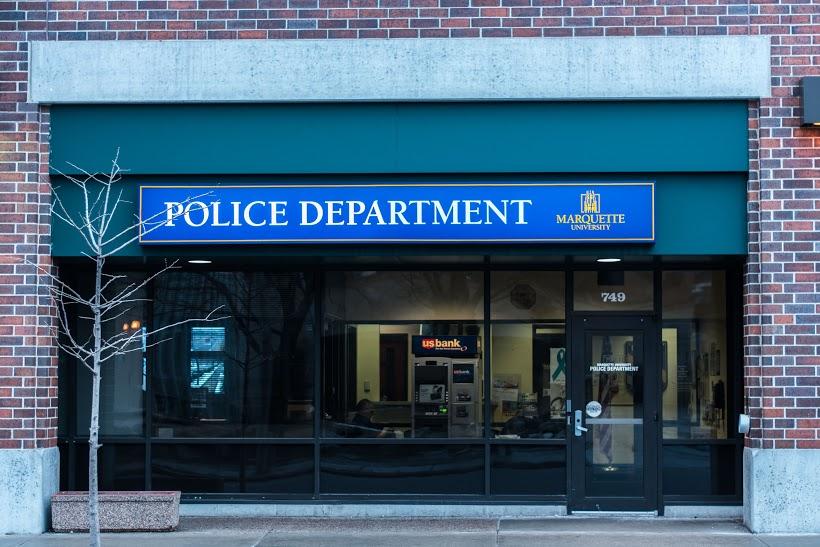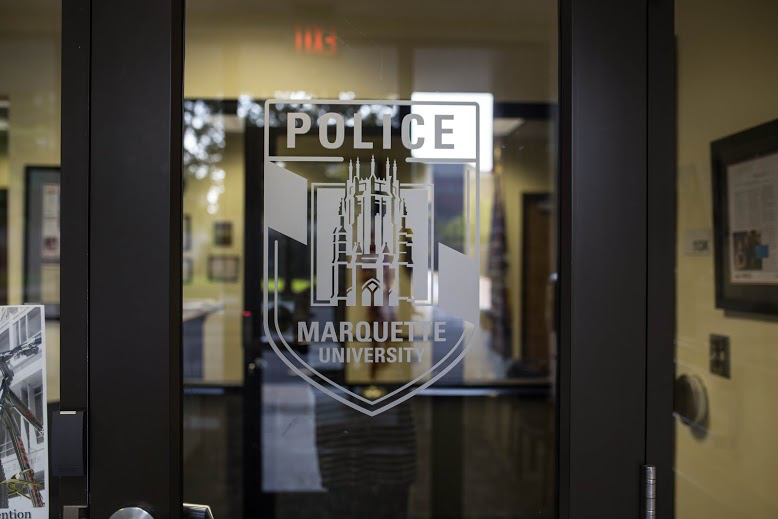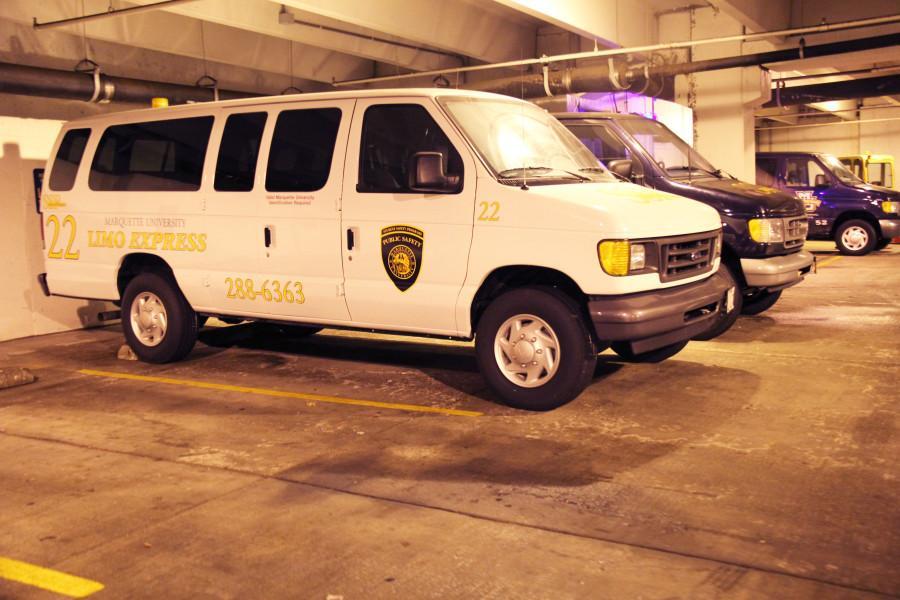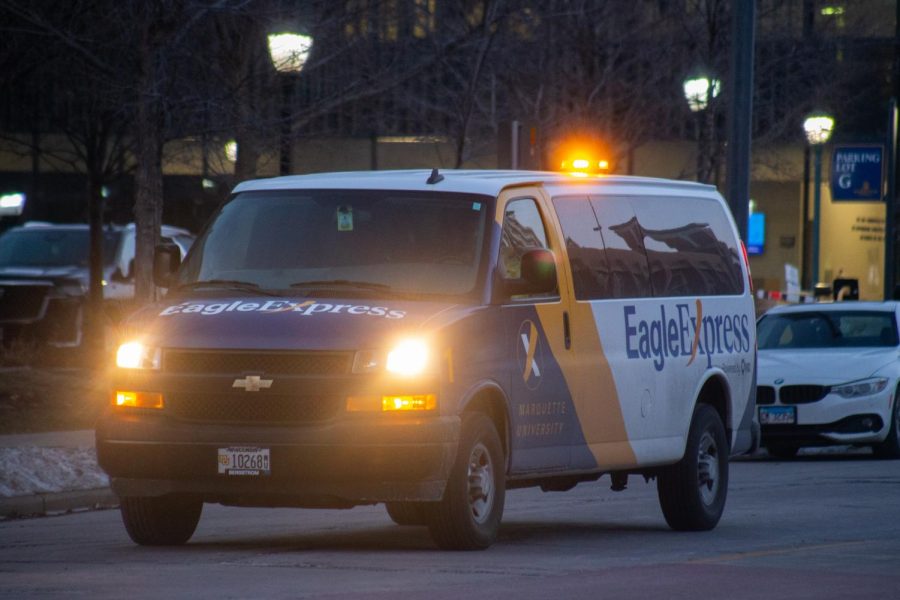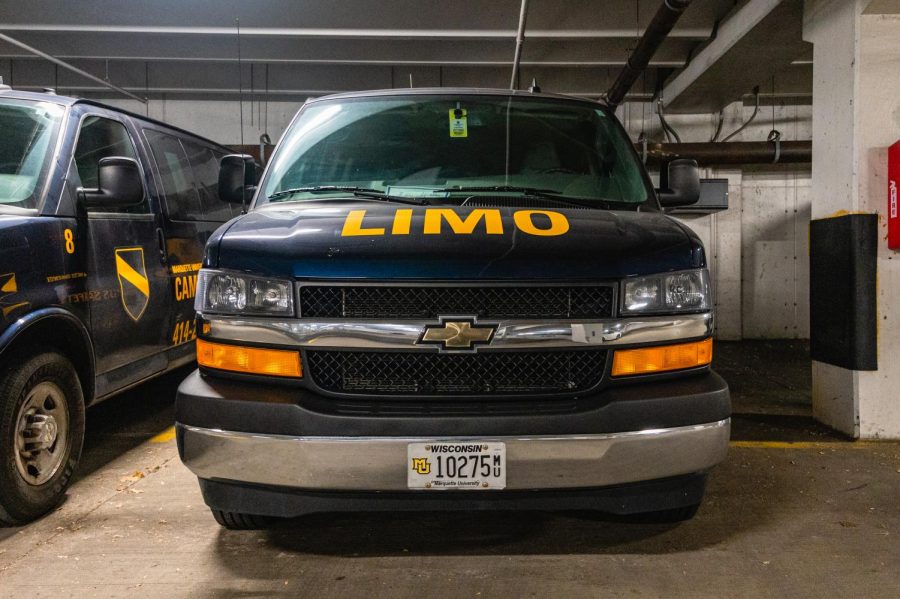
For most students and faculty members, driving their vehicle out of their garage is nothing special.
But for the team members working on Marquette’s newest automobile, the experience was thrilling.
After a four-year endeavor to get the new eLIMO up-and-running, the Ford E-350 van started and ran under its own power for the first time last weekend from its shop in the 1700 block of West Clybourn Avenue, the former Facilities Services location.
It’s the culmination of a project which has involved tireless work, several grants and sponsors and countless hours of planning and preparation.
Slated to join both regular and express LIMOs in the Department of Public Safety’s vehicle fleet in fall 2011, DPS’s 25th anniversary, the first eLIMO is entirely electric. It doesn’t have a gasoline engine or a transmission, but can be charged from any charging station and has regenerative capabilities. It also emits no local emissions.
James Lubow, Patrick Kortendick and Justin Thompto, all seniors in the College of Engineering, sat down to explain their year working on the eLIMO as part of a senior design course. The trio is part of a 10-person team, which includes eight students, team adviser Susan Riedel, and its capstone design course instructor/adviser George Corliss.
The team is not limited to engineering students. Two members, Dan Christowski and Scott Sullivan, are seniors majoring in computer science and finance and information technology, respectively.
“I appreciate their enthusiasm and their professionalism,” Corliss said of the team. “It is great to see students from Engineering, Arts & Sciences, and Business Administration working together. That’s what they’ll need to do throughout their careers.”
Faculty members approved the team after a selection process and gauging interest, Kortendick said. Lubow said this team’s legacy would be defined by getting the van on the road.
“It’s always been in the back of my mind,” Lubow said. “I saw it and thought, ‘Hmm … it’s still around, it must be close to completion, and we could be the team to finish it.’”
The first engineering design team started in 2007, but things moved ahead last spring when the Wisconsin Office of Energy Independence provided a federal grant of $65,000 to the project. Several other corporate and private donations were accrued after applying for funding through Marquette Student Government, the team said.
The majority of the work this team has done included installing the batteries, battery carriages, charging system and high voltage control system, Thompto said. Kortendick said this team is the first to have the eLIMO running under its own power rather than on an electrical cord.
While most LIMOs run eight hours, the hope is to have the eLIMO run daily for half that amount. The down time when the eLIMO is not in operation would provide enough time for charging, Lubow said.
Putting the eLIMO on the road could be the first step to a full fleet of eLIMOs, but any additional vans would have to be approved by the university and DPS, Kortendick said. Riedel said she has never viewed the eLIMO as a “one-of-a-kind” project.
“As the price of gas goes up and the cost of batteries goes down, this conversion can be a very cost-effective and environmentally friendly process,” Riedel said.
Branding is one of the next things on the team’s to-do list. Lubow said it’s important for the eLIMO to “look like a LIMO, but be unique.”
“We have to highlight the people who funded the project and note the major components,” he said.
The eLIMO even made it to the Twitter-verse this week, with the @MarquetteU account sending a congratulatory tweet on Monday. The van will be on display at the Green Energy Summit at the Frontier Airlines Center on March 9 and 10.
“It’s the nitty-gritty now,” Thompto said. “We’re making the car presentable and putting on the final touches.”
[youtube]IEHWX-Si3ss[/youtube]
Video courtesy of MU eLIMO team and website www.muelimo.com


